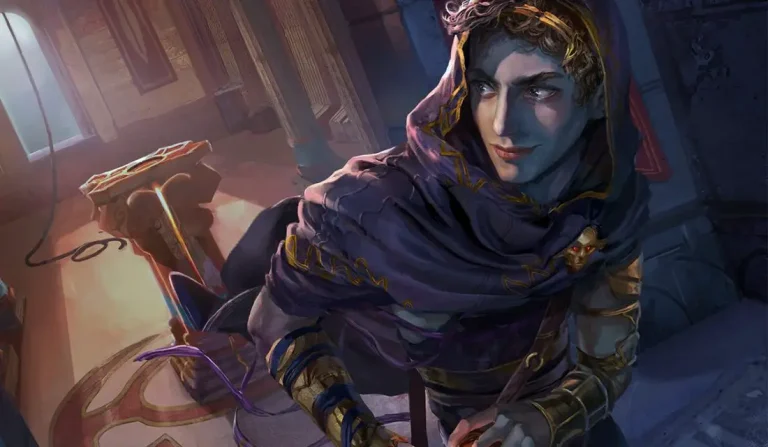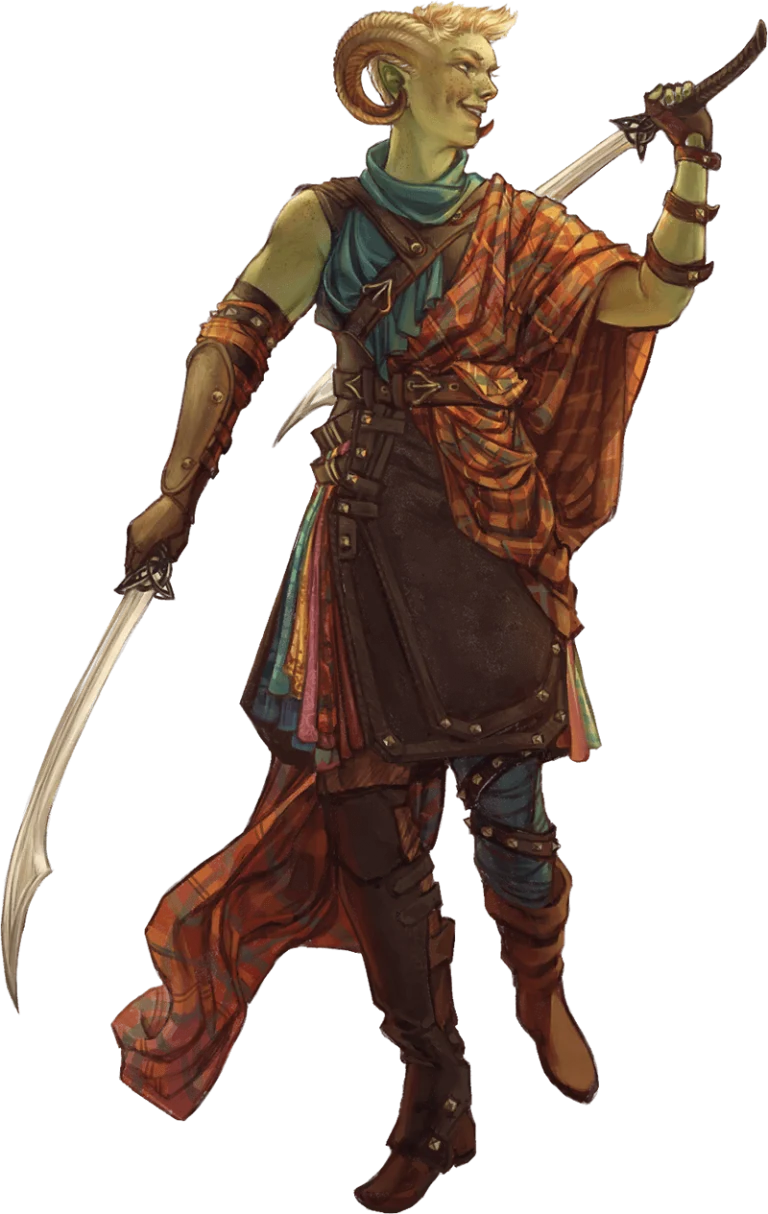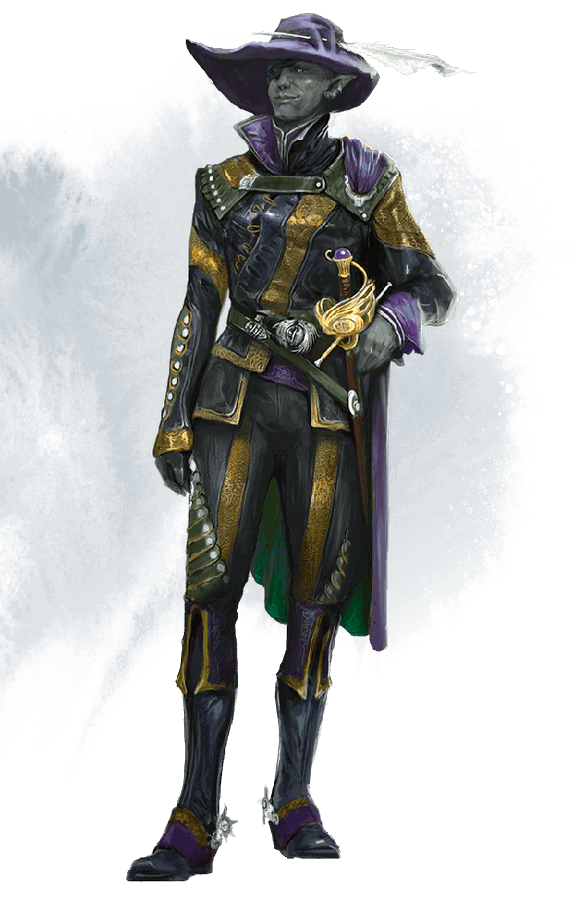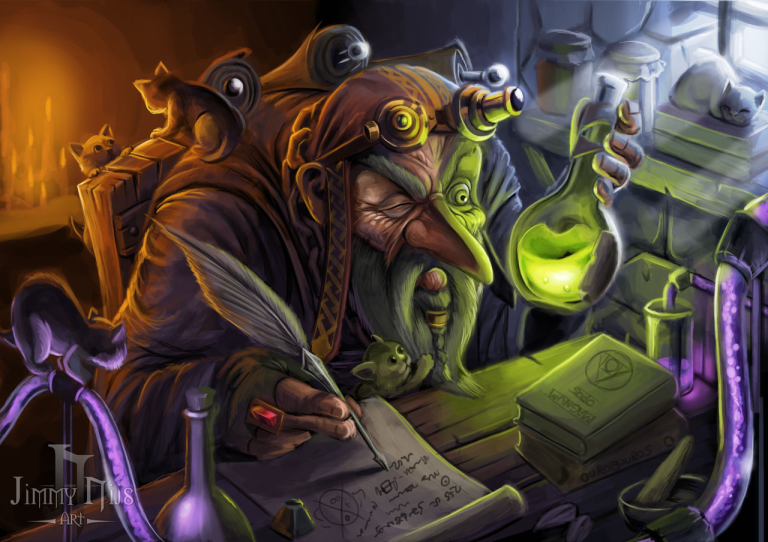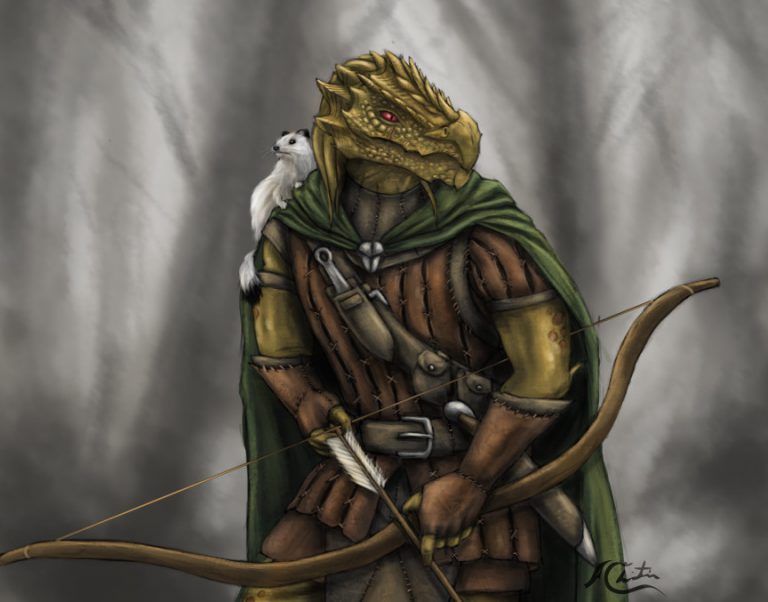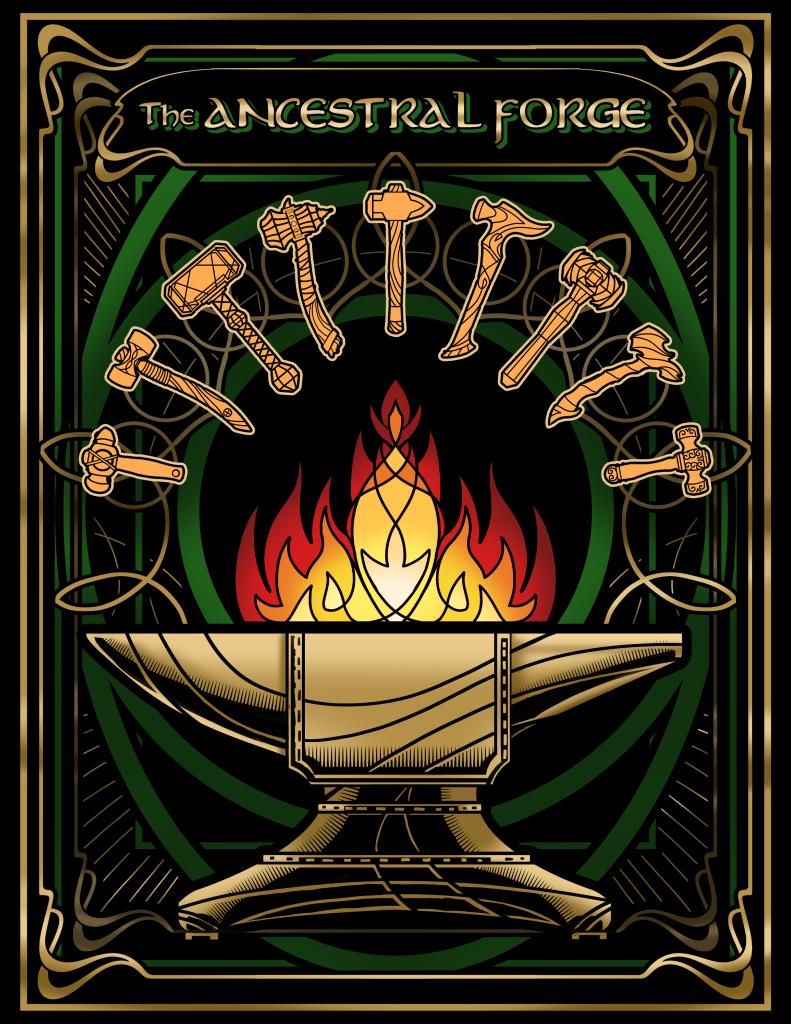D&D 5e: Gloom Stalker Ranger Guide

D&D 5e: Gloom Stalker Ranger Guide
Role in the Party
Gloom Stalker Rangers haunt the edges of civilization, cloaking themselves in the murk of twilight to observe, track, and finally kill the targets they deem necessary.
Powerful damage dealers that are as comfortable fighting on the frontlines as they are letting loose volleys of arrows, backed up with survival skills and a smattering of magic, the Gloom Stalker is as much an assassin as it is a Fighter.
Almost no one can sneak up on a Gloom Stalker in their natural element, and those that try to fight find an implacable foe that moves faster and hits harder than should seem possible. Then, when the deed is done, they vanish back into the darkness, leaving only their slain enemies as a sign they were ever there.
This guide breaks down the Gloom Stalker Ranger subclass, its abilities, and how to build one including backgrounds, feat and skill choices, as well as possible multiclass options.
Epic
Good
Meh
Bad
The Gloom Stalker Ranger subclass is found in Xanathar’s Guide to Everything. Click here to pick up your own copy of Xanathar’s Guide to Everything!
Gloom Stalker Features
Gloom Stalker Magic: At each of the levels below, the Gloom Stalker learns a bonus spell. These spells are always known and don’t count against the character’s known spell choices. Around half of these spells are situational, but there are one or two nice choices, and more free spells known are never bad.
3rd: Disguise Self: A reasonable spell for subterfuge, but it’s more urban-oriented, and the Gloom Stalker doesn’t normally have the skills to back it up.
5th: Rope Trick: Normally only a Wizard and Artificer spell, this is a safe way to take short rests, especially if you can disguise the rope in some way.
9th: Fear: This is normally a powerful spell, but not for this subclass. Casting it early when enemies are most likely to be grouped prevents this subclass from using most of its attack-based abilities, and the low WIS of many Rangers hampers its ability to stick.
13th: Greater Invisibility: One minute of invisibility that isn’t removed by attacking, casting spells, or taking actions? Permanent Advantage for you, and Disadvantage for most enemies. That’s very nice.
17th: Seeming: This is a long duration multi-target Disguise Self. It’s still not very useful.
Dread Ambusher: At level 3, this ability offers a whole mess of bonuses to the character in the first round of every combat. +WIS bonus to Initiative checks. +10ft to movement speed. An extra attack entirely for free, just for taking the Attack action, and +1d8 damage to one attack that hits.
This is fantastic. It’s useful at every level of the game, the bonuses are impactful and relevant, and the ability just feels thematically solid, like the character is a lion bursting out of the underbrush to chase down its prey.
Umbral Sight: Also at 3, gain Darkvision with the usual 60ft range, or if you already have it, add 30ft to the range.
On top of this, creatures that use Darkvision can’t see you with it. No check, no having to roll. You’re standing right in front of an Orc who’s walking through the dungeon, with no cover except the lack of light, and he doesn’t know you’re there until you stab him.
This is incredible and plays into the feel of the class. Paired with the mobility and attack boosts offered by Dread Ambusher, a Gloom Stalker could sneak close, unleash a hail of blows, then retreat out of combat completely unseen, slowly picking its enemies apart one by one.
Unfortunately, the rest of the party not being able to do this hampers the ability a little. But it’s still a fantastically powerful scouting ability that will keep everyone safe at night.
Iron Mind: Proficiency in WIS saves. If the character already has that, choose CHA or INT saves instead.
Save proficiencies are always powerful, and WIS is a regularly tested save that tends to result in terrible things happening if the roll is failed. This is good. It’s just a little bit boring, too.
Stalker’s Flurry: From 11th level, once per turn, when an attack misses, the Gloom Stalker can choose to reroll that attack roll.
This is fantastic and adds a ton of consistency to the character’s chance to land attacks. Considering that’s what the Gloom Stalker mostly wants to do, this is a more than welcome bonus.
Shadowy Dodge: From level 15, the Gloom Stalker can spend their reaction to force an enemy to make an attack roll with Disadvantage, as long as the attack didn’t already have Advantage.
This is another great ability. The fluff is nice. It comes at a low enough level that it might see some use, choosing to just impose Disadvantage on someone is equivalent to -5 to the roll, and all it costs is a reaction.
Strengths
Despite being called the Gloom Stalker, the subclass only has one ability that requires low light or darkness. Everything else on offer is incredibly powerful and turns the subclass into a fantastic damage dealer that will happily front load its DPS into a key target during the first round, then go on to do what the Ranger does best.
Better still, everything here is flexible, so the subclass is perfectly comfortable with any style of combat. Want to run an archer, dual-wield twin blades, or pick up a spear? Sure thing. Want to grab the biggest weapon you can carry and annihilate everything in your path, why not?
Spells are normally a supplement to what most Rangers want to do, but even here the Gloom Stalker brings one or two tricks of its own, with a couple of powerful, useful spells. Especially if the party has no Wizard in the group.
Outside of combat, there’s a ready identity built into the class, as well. As a scout, the Gloom Stalker is almost without comparison. Its ability to ignore one of the most common alternate sight types is pretty much unique and means that the class might as well have permanent invisibility in places where there is no light. (Or, y’know, at night.)
That means this is the character the party relies on when they’re sneaking through dungeons, tracking enemies, or taking long-distance overland journeys. Then, when the days take the team to towns and villages, the Gloom Stalker’s keen eyes and razor sharp perception can be turned on people and places instead, and any knowledge the class has picked up on its travels might just come in handy as well.
Weaknesses
Like many Rangers, the Gloom Stalker is a generalist. It’s good in combat, but it won’t out damage dedicated DPS monsters like Rogues and Paladins when their abilities trigger massive bursts of damage.
It’s reasonably tough, but not tough like a Fighter, Barbarian, or specialized Cleric can be. It’s good at skills in its niche, but won’t out skill the Bard. And the class does have spells, but nowhere near the spellcasting power of a main caster class like the Wizard.
This is both a good and bad thing. While the class won’t ever seem to excel at anything except that first round of combat, it’s always going to be useful. The Gloom Stalker will always have something to do and a way to deal with what’s coming. Bow and blade for enemies, spell and skill for the environment. There’s nothing the Ranger cannot supplant, given time and will.
Best Race Options
Bugbear: Reasonable stats, but the racial abilities of the bugbear are hilarious. Proficiency in Stealth, Darkvision, a +5ft melee reach (15ft reach with polearms!), and +2d6 damage once for free in the first round of combat. This is near perfect.
Harengon: Perception, bonuses on DEX saves, a bonus to Initiative that stacks with the subclass bonus and the ability to bounce around without provoking opportunity attacks are all incredibly useful things for a Gloom Stalker.
Firbolg: Decent stats, a couple of spells, the ability to speak to animals and plants (?), and the ability to once per day turn invisible as a bonus action for a turn. All these features contribute toward making a more Druid flavored build.
Choosing the Right Skills
Stealth.
Seriously though, the ability to disappear into the darkness is a big chunk of this class’s flavor, and a decent portion of its mechanics, too. Take Stealth.
The Gloom Stalker will also want Perception. Insight is a WIS based skill that gives the class something to do in social situations. Any remaining slots can be spent on things like Survival, or one or two knowledge based skills, to round out the skill list.
Fitting Feats
Alert: The Gloom Stalker wants to go first. Alert gives you a huge boost towards going first. Immunity to being surprised is also very on-theme for Rangers in general, and this subclass in particular.
Sharpshooter: Double ranged weapon ranges, ignore half and full cover, and choose to take -5 to hit for +10 flat damage. The penalty is canceled by Advantage, so when doing what the class wants to do and attacking from the shadows, this is an easy way to add a massive burst of damage to ranged characters.
Mobile: Another 10ft boost to speed and the ability to ignore opportunity attacks after attacking an enemy are perfect for the melee Gloom Stalker. Close in, deal the damage, and duck back out again, safe and ready for the next turn.
Optimal Backgrounds
Urchin: Two DEX based sneaking skills, a (fairly useless) Tool kit, but most importantly, Thieves Tools, in case the party doesn’t have them anywhere else.
City Watch: Solid skills and twin languages, plus a built-in reason why the class is comfortable skulking around at night.
Far Traveler: Two perfect skills, a language, and a musical instrument or game make for a nicely rounded character archetype.
Multiclassing Options
Echo Knight Fighter: Dread Ambusher says that the character can make another attack as part of the Attack Action during the first round. The Echo Knight can also take another extra attack as part of the same action, CON bonus times per day.
So what happens when a character uses Action Surge to take the Attack Action twice, firing off 8 (!) two-handed weapon attacks in one turn, from as low as level 8?
Things die, that’s what happens.
The Echo Knight also lets the character summon a shadow of themselves as a bonus action, which they can attack from the position of, opportunity attack enemies that move away from the shadow or switch places with it by teleporting. As well as being amazingly flavorful, it’s perfectly in theme for the build to be constantly shifting unpredictably from place to place before it goes in for the kill.
Circle of Stars Druid: Some bonus spellcasting, including Druid cantrips, and the incidental benefits of Wild Shape are both nice bonuses to this dip, but we’re here for Starry Form.
As a bonus action, the character can assume a glowing, celestial form for 10 minutes that gives it one of three benefits for the duration. Bonuses to healing might come in hands, and so can the boosts to WIS and INT skills and concentration checks. But we want Constellation of the Archer.
Why? Because it’s a bonus action ranged spell attack. Characters using bows or crossbows sometimes struggle to find ways to spend their bonus action, and an extra 1d8+WIS radiant damage that can also trigger Hunters Mark damage is a fantastic way of doing so.
Scout Rogue: A 3 level dip in the Scout subclass adds a huge amount of skill use and versatility to Gloom Stalker.
What does it give the build? 2d6 Sneak Attack once per turn is a nice damage boost. Cunning Action adds an absolute ton of mobility. Skirmisher lets the character retreat as a reaction without opportunity attacks whenever an enemy gets within 5ft. (Not just useful for bows. Grab a polearm with reach…)
Finally, the class gains Nature and Survival proficiency and doubles their proficiency bonus when making checks for both skills. For those keeping score, between this and Expertise, the build has doubled bonuses for four skills, somehow making the Scout Rogue even more Ranger than the Ranger.
Would I recommend playing a Gloom Stalker Ranger?
The Gloom Stalker is a fantastic Ranger subclass. The only thing it offers that’s even slightly disappointing is its spell list, and even then, most of the options are at least decent sometimes.
More importantly, all of the major abilities on offer slot nicely into basically any Ranger build or multiclass you could think of, are powerful, and are likely to come up multiple times a day. This all results in a class that’s effective on the tabletop works well with the party, and most importantly is incredibly fun to play. If you haven’t tried a Gloom Stalker yet, you owe it to yourself to give one a go next time you sit down to create a character.



